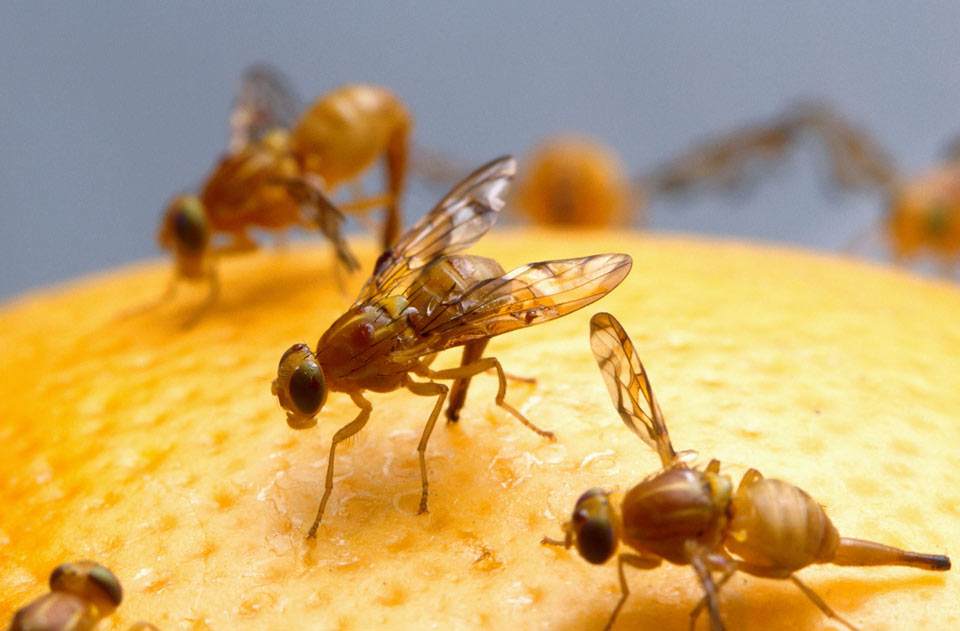This is Scientific American — 60-Second Science. I'm Christopher Intagliata.
Just like humans, fruit flies have to eat a balanced diet.
"They need sugar to survive, they need amino acids to make eggs, to have stem cells proliferate. They need salt, they need vitamins."
Carlos Ribeiro, a neuroscientist at the Champalimaud Center in Portugal. Yeast, he says, is a crucial component of the fly diet. "I always say, yeast is the steak of the fly."
Take yeast away, and the flies crave it—gotta make those eggs. Ribeiro and his team found they could also elicit that yearning for yeast simply by removing a few key amino acids from the flies' diet—but only in those flies that had their gut microbiome wiped out.
Here's the twist: when Ribeiro and his colleagues restored the standard fly gut microbiome, amino-acid-deprived flies did not seek out yeast to compensate. That might seem like the gut microbes are actually working against the flies' best interest—blocking their instincts to seek out missing nutrients.

But what actually happened, Ribeiro says, is that flies with the gut microbes maintained good egg production despite their nutritional deficiency. Suggesting that somehow, microbes help the flies adapt to nutrient-poor conditions.
"So somehow the microbes reprogram the metabolism of the fly to now cope better with an absence of amino acids in the diet. And that might also lead then to the fly not having to produce a strong craving for amino acids." The study is in the journal PLoS Biology.
Of course, flies are not humans. But still, Ribeiro says, "I think there is now more and more compelling evidence that the microbes in the gut, also of humans, affect behavior, mood and stress, and maybe even, people propose, some diseases. But how microbes do so and why they would do so is completely unclear."
Still: next time you're staring at a menu, undecided on what to order...you might try just going with your gut.
Thanks for listening for Scientific American — 60-Second Science Science. I'm Christopher Intagliata.












